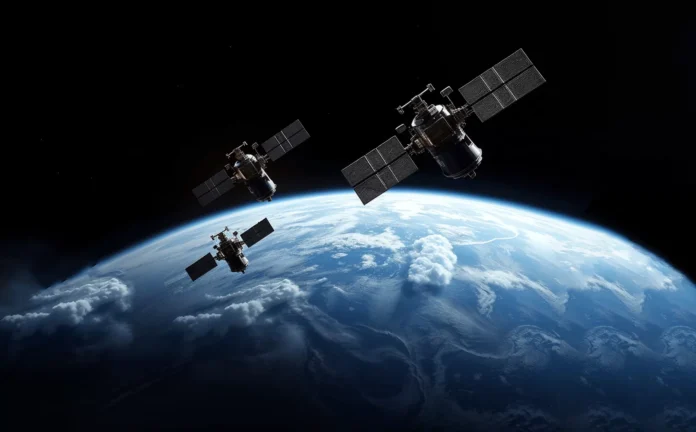Detecting satellite orbit anomalies requires human intelligence
Satellites play a crucial role in our daily lives, from providing communication and navigation services to monitoring weather patterns and gathering data for scientific research. However, these valuable assets in space are not immune to anomalies and malfunctions. In fact, detecting and addressing these anomalies is a critical task that requires a combination of technical expertise and human intelligence.
Satellites are complex machines that operate in a harsh and unpredictable environment. They are constantly exposed to various external factors such as solar flares, radiation, and space debris, which can affect their performance and even cause malfunctions. In addition, satellites are also vulnerable to intentional attacks, such as cyber-attacks or physical interference, which can disrupt their operations and compromise their data.
Identifying and addressing these anomalies is not a simple task. It requires a deep understanding of satellite systems and their behavior, as well as advanced monitoring and analysis tools. However, technical solutions alone are not enough. To effectively detect and respond to satellite orbit anomalies, we also need human intelligence.
One of the most prominent examples of the importance of human intelligence in detecting satellite anomalies is in missile launch detection and characterization. This has been a longstanding challenge for space agencies and military organizations around the world. The ability to accurately detect and characterize missile launches is crucial for national security and global stability.
While technical systems such as early warning satellites and ground-based radars are essential for detecting missile launches, they are not foolproof. They can be affected by various factors, such as weather conditions or intentional jamming. This is where human intelligence comes into play. By combining the data from technical systems with human intelligence, we can improve the accuracy and reliability of missile launch detection and characterization.
Human intelligence can provide valuable insights and context that cannot be obtained from technical systems alone. For example, satellite operators and analysts can use their knowledge and experience to identify abnormal behavior or patterns in satellite data that may indicate an anomaly. They can also provide critical information about potential threats or suspicious activities in the vicinity of satellites.
Moreover, human intelligence can also play a crucial role in advance warning of potential anomalies. By continuously monitoring satellite data and analyzing it in real-time, operators and analysts can detect early signs of anomalies and take proactive measures to prevent or mitigate their impact. This can save valuable time and resources, as well as prevent potential damages or disruptions to satellite operations.
In addition to detecting and addressing anomalies, human intelligence is also essential for maintaining the overall health and performance of satellites. By continuously monitoring and analyzing satellite data, operators and analysts can identify potential issues or malfunctions before they escalate into major problems. This proactive approach can help extend the lifespan of satellites and ensure their optimal performance.
Furthermore, human intelligence is also crucial for troubleshooting and resolving anomalies. In the event of a malfunction or anomaly, satellite operators and analysts can use their expertise and knowledge to quickly identify the root cause and take appropriate actions to resolve it. This can minimize the downtime of satellites and reduce the impact on their operations.
In conclusion, detecting satellite orbit anomalies is more than just a technical task. It requires a combination of technical expertise and human intelligence. By leveraging the power of human intelligence, we can improve the accuracy and reliability of anomaly detection, as well as advance warning and troubleshooting. As the space industry continues to grow and evolve, the role of human intelligence in satellite operations will only become more critical.

